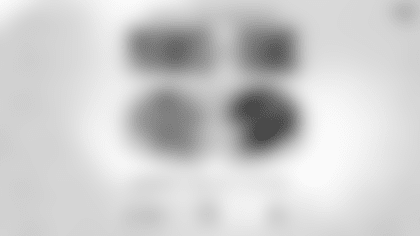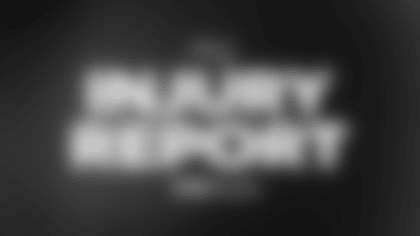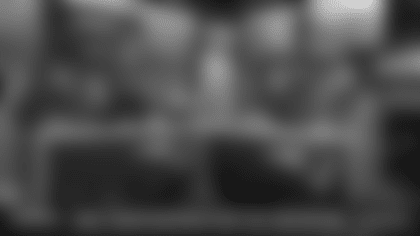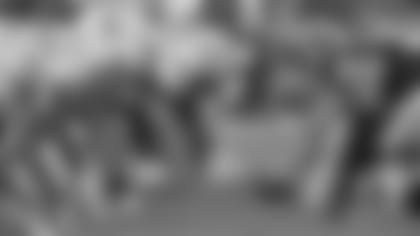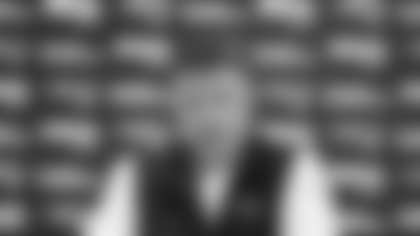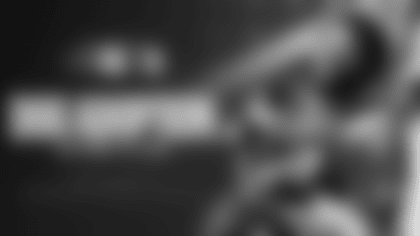**
BB: **We're going to wind things down here today; try to finish up some situation things on the Jets, head down there and be ready to go on Sunday. Another division game on the road, looking forward to it.
Q:As you've worked this week in practice on the communication without Jerod Mayo, how have you felt that has gone?
BB:Well, we'll see on Sunday. We don't know what they're going to do. We'll just have it to see how it works out. They give you a lot of different looks anyway, especially when they go through their script at the beginning of the game. We'll see how we handle the whole situation.
Q:Have you tried to simulate it in practice?
BB:Of course. Yeah, sure, of course.
Q:How has that gone?
BB:Practice is practice. Some things are good, some things we need to correct, like normal in practice. But we'll find out where we're at on a lot of things on Sunday.
Q:There's a report from Drew Rosenhaus that Rob Gronkowski has been medically cleared. Do you have any comment on that?
BB:We'll list the injuries at the end of the day like we always do on Friday.
Q:With the two defensive captains on Injured Reserve, have you elevated anyone up at this point?
BB:Nothing that we would announce, no.
Q:Did Rob Gronkowski have a black jersey for last week, as a practice player of the week?
BB:Yeah, I think he did. He worked [Jimmy] Graham in practice.
Q:How has Dane Fletcher looked this year? He's played more on special teams, not a huge role defensively after his injury last year. Where is he at right now and is he at a point where he could handle a bigger defensive role?
BB:I think Dane has had a real good year. Unfortunately, Dane got hurt in the first preseason game last year. But the good thing about that was it was early enough that so even by the end of the season last year, he was well, well on his way onto the rehab and recovery. Then when we started OTAs, he was full-go there. He really hasn't missed anything all year. from the first day of OTAs, well the entire offseason program for that matter, but all the OTAs and then training camp, he's been a full participant and has been very productive in all the roles really that he's been in, both in the kicking game and as you said, some things defensively with not as much playing time but the playing time he did have in preseason, he did a good job with. He's played a number of different positions for us. I think his overall understanding and experience in our defensive system has helped him, it's helped us and he's a more versatile player as well as more productive player in the positions that he does play, but he also plays more of them. He's really done a good job for us in the kicking game with Matt Slater out here for the past few weeks. Dane has really not only stepped up his performance but also he's given us good leadership and communication on the field. He's really done a good job for us this year. I couldn't say enough good things about Dane. Really, he worked very hard last year during the season in his rehab to put himself in position to be ready to go this year. It's been a lot of hard work on his end and I think it's really paid off.
Q:In a situation like last week, when Aqib Talib went out, what goes into the decision to move Devin McCourty down to cornerback and move someone into Devin's spot at safety or moving someone else in at cornerback?
BB:Right, but really, that's something we handle during the week. I don't think you want to get into the game and start, 'Well, what are we going to do now?' You go through that during the week and you talk to each player about their responsibilities, what have for the game, who's backing up who, who's in what personnel grouping and so forth and you practice it that way. There are plays in practice, where the right corner is out, the left corner is out, the left safety is out, the right safety is out, the middle linebacker is out. We take those guys out and somebody else either moves or we substitute for them or whatever we do. The problem usually comes in on any team if you lose two people at one position then that's where the wheel starts spinning pretty fast usually. So if you lose two of anything –two quarterbacks, two running backs, two tackles, two linebackers, two corners, two of anything – nobody really ahs much depth to be able to handle that or it would be rare. Maybe you could handle it in one or two positions but you wouldn't be able to handle it across the board, you'd have to move quickly. So in practice the one position move is, that's I won't say it's easy, but I think that's something that you go through as normal procedure. It's that second move that you have to be prepared for but it's hard to have enough depth, like I said, at every position to back every position up with two people. I mean, you've got to be able to do it, but that's a little more of a scramble.
Q:How does that dynamic change when it happens during the game as opposed to during the week when you have three days of practice to prepare?
BB:Well, it's always easier to prepare if you know what it's going to be. That happens frequently going into the game. You have two or three players that are questionable for the game, a lot of times you don't that decision until game time so you prepare with them, you prepare without them. Then once that's determined, you know what you're doing. Obviously you don't want to, but if you have a sense that a player is going to be out for the game, then you can practice that week and at least you know what you're practicing for. Of course it's the unexpected ones, where guys practice all week and then they go out there in the game and then something happens and they're out. You're ready to replace them, I'm sure you've talked about and worked on that in every situation but like I said, when it's two of them – and of course, special teams is a bigger problem because one player there is really four teams. If you lose a guy, you're replacing him on kickoff, kickoff return, punt, punt return. So now, sometimes it's the same player that replaces him, but I'd say probably more often than not, it's not. It's a combination of, 'OK, these two guys are not his team, these two guys are on that team,' that type of thing. Having been a special teams coach, I can tell you that that's a scramble too because then a lot of times that same player who now replaces that guy on special teams, also has a greater role on offense or defense because of that person's injury. Like, you're not replacing on special teams with a linebacker. You're not replacing a running back with a receiver. It's guys from that same type body build or skill set. So when you lose one of them in the kicking game, you have a small group of replacements but there's stress on that position probably in other areas of the team too.
Q:You said you wanted Chris Jones twice before you got him, when you looked at him in the draft and when he was initially released by Houston.
BB:Well, we looked at everybody before the draft.
Q:Well you said you finally were about to get him –
BB:Right, we tried to claim him at the 53 cut.
Q:What qualities does he have that made him so appealing to you?
BB:I think just think he was a good player in college. He's got good size, he's athletic, he's got some quickness, he's a smart player, he's got a good motor, plays hard. You know, he's made a lot of, as we've already seen, he's made some hustle, chase kind of plays on screens and pursuit plays on the other side of the field. He runs well and he plays with a good motor and a good effort. It's the same thing he did in college. He's worked really hard since he's been here. Obviously he missed all of training camp but when we came in, without all those training camp practice sessions, it's sort of hard to catch up on where everybody else is, but he's worked really hard to do that, both in the playbook and from a technique standpoint. I think some of the things that we do probably are definitely different from the way he was coached to do them at Houston, or in Tampa for that matter, for the time he was there. So, he's had to adapt to some different technique things and probably a little bit different scheme-wise as well, his responsibilities. But he's worked hard to learn that. I would say in a short amount of time, he's become a pretty dependable guy for us. When we call a defense, make a call, I think we all – players, coaches –have a pretty good confidence level that he's going to do the right thing because he's done it and he's picked it up and he doesn't make the same mistake twice. He's a hard working kid that has some skills.
Q:Is he a guy who spent a lot of extra time with Patrick Graham?
BB:Yeah, sure. Sure, with Pat, Vince [Wilfork], Tommy [Kelly], those guys did a real good job with him. Of course, not so much on the field now, but Chandler [Jones], Rob [Ninkovich] and of course Pat Graham. They've spent a lot of time with him. He and Joe [Vellano] have developed a little bit of experience playing with each other, communication and that type of thing. Even those it's only a limited basis, it's only a handful of games, but it's better, it's certainly improved over the last three or four games. Hopefully we can keep that going. But those two guys have worked hard. They're trying to do the right thing. They're getting better every time they come off the practice field, each game they improve, they do things better than they did them before. I think if they keep working hard and maintain that type of attitude and work ethic that there's no reason why they shouldn't continue to improve. As they continue to play with each other a little bit more, hopefully they'll have a better communication and rapport with each other on the field as well.
Q:Rob Ninkovich said that he was able to tip Chandler Jones off to the bootleg that Drew Brees was going to run because of film study. How self-motivated is this group to study film?
BB:They're good. Really, defensively, this is a good hard working group. They've been together, other than Chris [Jones], but for the most part we've been together all year. They do a good job of reminding each other of things like that in the secondary, the linebackers and the defensive line. Things like that like if I'm a defensive end, talking to the other defensive end about his responsibility or if I'm the safety, reminding the other safety about certain patterns or formations that come out. Being alert for Wildcat type formations if they have that player in the game or empty sets or where the location of a certain player is or which back is in the game, linebackers, like last week the difference between [Darren] Sproles and [Pierre] Thomas, as an example, was pretty significant. Like those kind of reminders and those kind of alerts are, I think, what a good defense does. They know their job but they're also communicating with their teammates and alerting them to things that come up by down and distance, by personnel, by formation. That's just awareness, good awareness, on defense. I think there have been a lot of good examples of that during the year. That was one that Rob talked about that showed up at a key point in the game, but I think there have been a number of those: who their go-to receiver is in certain situations, who their deep receiver is, screen alerts, things like that. That communication on defense is important to playing goo defense sand I think overall this group has done a good job of trying to do that.
Q:How good has Stephen Gostkowski been this year and how important is it to have continuity at that position?
BB:I think Steve has had a real solid camp and a real solid year. He's kicked off extremely well, not only distance but even the hang time kicks. Some of the balls that have been returned had quite a bit of air under them so we had a chance to cover them. He's made a lot of big kicks for us and he's given us a lot of dependability there at that position, even though we've had some transition with the punter and the snapper over the last three, four, five years. But Steve is very focused and he's got a lot of mental toughness. He doesn't let other things bother him. He just tries to do his job and he's done it pretty well. He's a solid football player too. We've all been around a lot of specialists but his mentality is more of a competitive athlete, baseball player and now football player. But I'm sure he's been in a lot of competitive situations and he just makes tackles on the kickoff team and works out in the offseason program with the regular position players and competes well with them. He's a good solid guy on our team and he does very well at his position. I think he has the respect of everybody in that locker room, based on his day to day performance. He's always ready to work; he always does a good job putting the team first. He's a good teammate, good person and good player.
Q:How do you know when a guy who is relatively new to the system here, like Austin Collie, is ready to be in a game day situation? Is it just from practice or the conversations you have with him?
BB:That's a really good question because there are always things that no matter how many walkthroughs, meetings, film sessions, conversations you go over with somebody, there are things that happen in the game that you don't cover or they happen a little bit differently. So, when are they ready? I mean, they're never 100 percent ready. But there's a difference between being ready and when you put the person in there and feel like, well there's just too many things that can and probably will go wrong because they're just not prepared enough for those. We know there are going to be one or two things that are going to come up that we haven't covered, they're just going to have to react to and hope it's the right thing. I'd say in Austin's case, that the first week he was probably, we probably could have played him. I don't know. He certainly worked hard. He's a smart guy. But I would say that there was a lot of growth from week one to week two. I think we all felt – myself, Josh [McDaniels], Chad [O'Shea], the quarterbacks – that he was much further along the second week. he'd heard it the second time, he'd repped it more, he was more familiar with the terms and things like that, even though in the [Saints] game, we were in more of a no-huddle offense and the week before, against Cincinnati we were more calling the plays in the huddle. But regardless, he just seemed quicker, had fewer questions, was more confident, played quicker, played faster so I think it's a combination of all those things. It's seeing it on the practice field certainly, but it's also when you ask questions in the classroom and go through it, that the player can respond to them quickly and with confidence and you know he knows it. Sometimes giving the right answer isn't really comforting because you just don't have any confidence that, maybe it's a 50-50 guess or maybe they say it but you're not sure if they're sure, whereas there are other times when you feel sure. Crossing that bridge – which I don't know if I'm really answering the question, but it's kind of a judgment thing – but crossing that bridge, once you're across it, you feel like, 'OK, we're pretty confident he's got it.' Yeah, there are going to be one or two things but we have experienced players that one or two things might come up and they could make a mistake on them. But I think from week one to week two, we saw a definite, much more solid player in terms of communication, understanding, decision-making, reactions and hopefully that will continue. But that's a fine line. The answer to that question, what it looks like on Wednesday, what it looks like on Thursday, what it looks on Friday, maybe even what it looks like on Saturday, sometimes changes with a new player. Sometimes it crystallizes and it becomes more solid and sometimes as you from first and second down to third down to red area to two-minute, that it unravels if you will. The wheel spins faster and what they had on Wednesday, I don't want to say forgotten, but maybe gotten confused with some of the things that come up on Thursday, Friday and Saturday. So, a lot of times you really don't know the answer to how that's going to come out until you get the full body of work in and can make a better decision. But I've seen it go both ways. I've seen guys come in the first day on Wednesday and we're saying, 'OK, it looks like this guy's got it.' Then by Saturday, it's, 'Well, what he had on Wednesday, that's all running together with the other stuff.' And vice versa, sometimes it looks bad on Wednesday and doesn't looking very good on Thursday but by Friday and Saturday, somehow after multiple reps and multiple meetings and all that, that it finally settles in and it makes sense. It's certainly a very individualized type of call and I don't think there's any book on that. You just have to try to figure it out the best you can.


